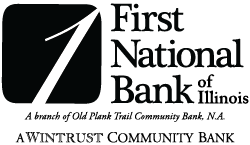Are You Optimizing Customer Data Legally and Ethically?
Are You Optimizing Customer Data Legally and Ethically?
Data optimization refers to collecting data from various sources and increasing the speed and comprehensiveness in extracting information.
Collecting customer data is one of the most important things you can do for your business because you can uncover "make or break" insights that allow you to change a flawed strategy right away. If you don't reach out to your customers legally and ethically, you may lose future sales one customer relationship at a time — perhaps without even knowing it.
Collecting Customer Data
Customer data have been historically solicited in a few different ways. Businesses can ask customers outright, track their behavior on a website or social media platform, or purchase data from a third-party source.
They can also glean valuable information from transaction records like recorded customer phone calls, online chat modules, customer reviews, orders, and invoices. Increasingly, businesses are also deploying mobile capture via GPS stamps, photo annotation, and speech recognition.
Depending on their size, many organizations also have customer relationship management (CRM), which helps them keep track of and follow up on customer interactions.
Analytics tools function to analyze these platforms and determine where customers live, the content they spend the most time reviewing, the products and services they buy most often, and how and when they might disengage with a business.
Another popular optimization strategy is administering quantitative and qualitative surveys. Quantitative surveys allow businesses to poll a large number of customers at once on specific questions or issues. On the other hand, qualitative methods like focus groups and interviews zero in more closely on customer sentiment in real-time.
New Optimization Technologies
While it was once challenging to collect qualitative feedback at scale, artificial intelligence (AI) is broadening the possibilities. According to a 2021 article in Harvard Business Review by Mohamed Zaki, Janet McColl-Kennedy, and Andy Neely, a customer-focused, AI-based framework can extract and map keywords representing the customer experience to the following dimensions:
- Interactions (e.g., calling, chatting)
- Activities (e.g., fixing, ordering, service delivery)
- Resources (e.g., knowledge, system, product, skills)
- Customer role (e.g., provides suggestions or neutral)
- Context or situations affect the experience (e.g., weekend)
The technology can then identify both customer emotions (joy, love, sadness, anger, and surprise) and cognitive responses (compliments, complaints, and suggestions) at various touchpoints.
At the height of the COVID-19 pandemic, some businesses adopted autonomous laser technology to collect customer data that would streamline safety enforcement, including faces without masks and higher-than-average body temperatures. It’s easy to see how this type of surveillance technology could be used to collect customer data in general.
But of all these strategies, what’s legal and ethical? Let’s look at a few considerations.
Legal
Surprisingly, there are no federal privacy laws regulating many businesses, so the data they collect isn't regulated unless a state-specific law is in place. States with privacy laws pertaining to the customers who live there include Colorado, California, and Virginia. In terms of legal obligations, in most states businesses can use, share, and sell customer data without notifying individuals, and if data are breached, businesses don’t have to tell customers.
Ethical
Neglecting to obtain informed consent (making appropriate efforts to communicate to those being tracked what data are being collected and how data are being processed and stored) can lead to distrust and disillusionment, which can lead to decreased sales and potential lawsuits. Here are 10 guidelines for building and maintaining trust with customers when it comes to data issues:
- Store individual data anonymously.
- Ask before selling or sharing data with third parties.
- Work with partners who also handle customer data responsibly.
- Only personalize content based on the data customers have voluntarily provided.
- Periodically clean databases to avoid redundancies and flush out old or irrelevant information.
- Develop clear customer data collection policies and train every employee on how to implement them.
- Only collect data relevant to business goals or the product or service being offered. Hold as little personal information as possible.
- After communicating exactly what is done with mined data, provide an opportunity for customers to opt out of data collection.
- Don’t discriminate against people who wish to keep their data private, and don’t offer incentives to those who give up greater amounts of information.
- When asking customers for direct feedback, be responsive, take their ideas to heart, and act quickly if possible.
Remember, your customer insights are only as valuable as the data on which they’re based. And while top-notch optimization is important, so is the need to do right by your customers.
For business needs that fall outside the typical day-to-day, we can help you find a solution.





